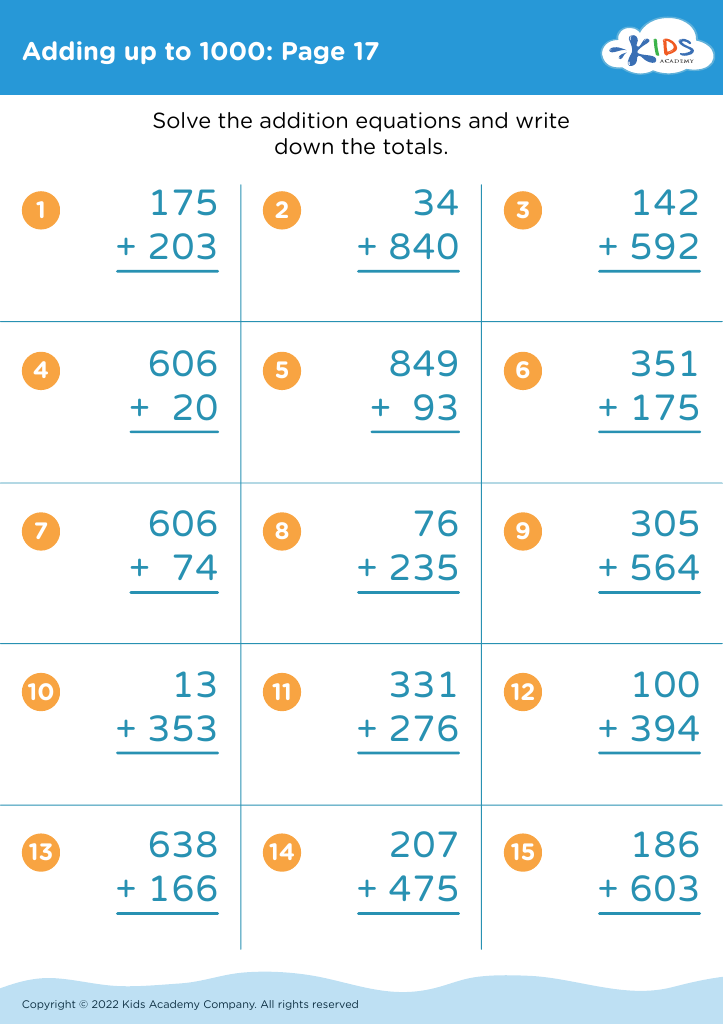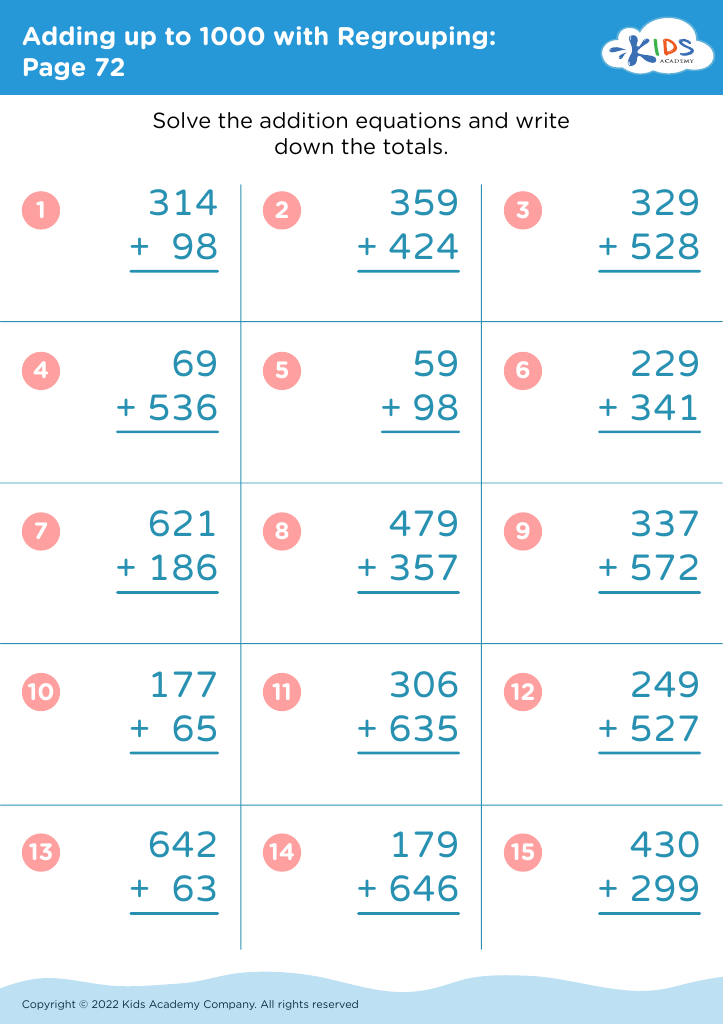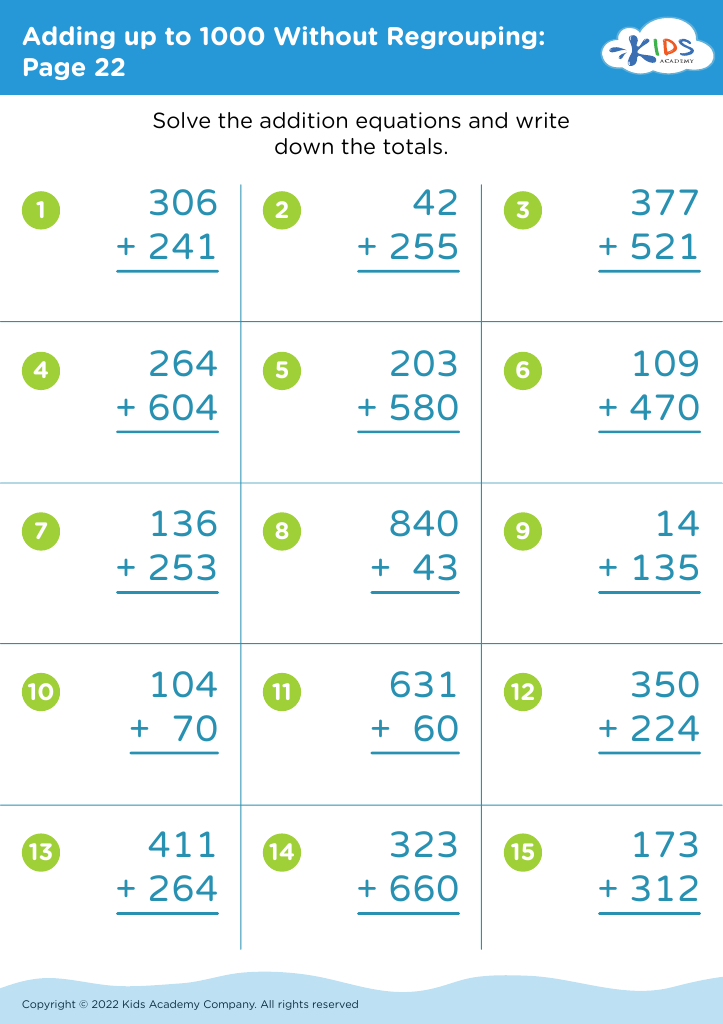Problem Solving Adding up to 1000 Worksheets for Ages 3-9
3 filtered results
-
From - To
Discover our engaging "Problem Solving Adding up to 1000 Worksheets" designed specifically for children aged 3 to 9! These interactive worksheets help young learners master addition by tackling real-world problems, building essential math skills in fun and accessible ways. Each worksheet encourages critical thinking and logical reasoning, allowing children to explore mathematical concepts while boosting their confidence. Whether your child is beginning their math journey or refining their skills, these resources offer a comprehensive and enjoyable approach to learning. Instill a love for problem-solving and arithmetic in your child today with our thoughtfully crafted worksheets!
Problem solving, particularly with numbers up to 1000, is critical for the cognitive development of children aged 3-9. It fosters a deep understanding of mathematical concepts while enhancing critical thinking skills. Engaging in problem-solving activities equips young learners with the ability to recognize patterns, make connections, and apply logic, which are essential skills for success in both mathematics and everyday life.
For parents and teachers, focusing on this area cultivates resilience and persistence. Children learn to embrace challenges and develop strategies to overcome obstacles, important attributes that contribute to emotional intelligence. Furthermore, early exposure to problem solving hones communication skills, as children must articulate their thought processes and collaborate with peers, enhancing their ability to work in group settings.
By nurturing these skills early on, educators and parents set the foundation for academic success and lifelong learning. As children master problem solving with numbers, they transition to more complex mathematical operations with greater ease. Ultimately, prioritizing problem solving up to 1000 addresses both academic and developmental milestones, ensuring children are well-equipped for future educational challenges and opportunities, while fostering a love of learning in the process.




















